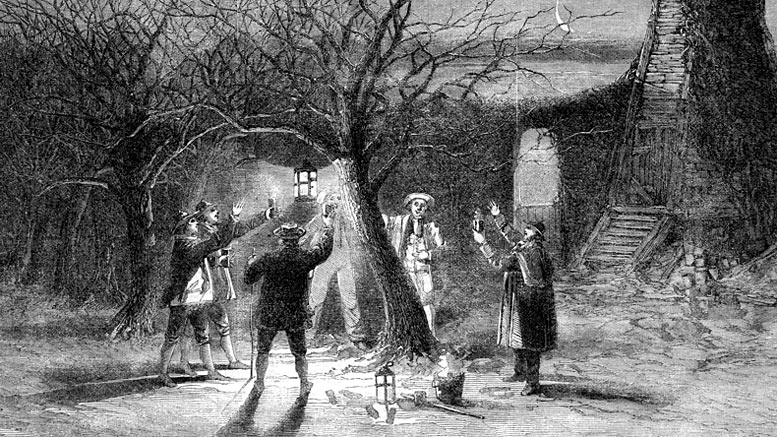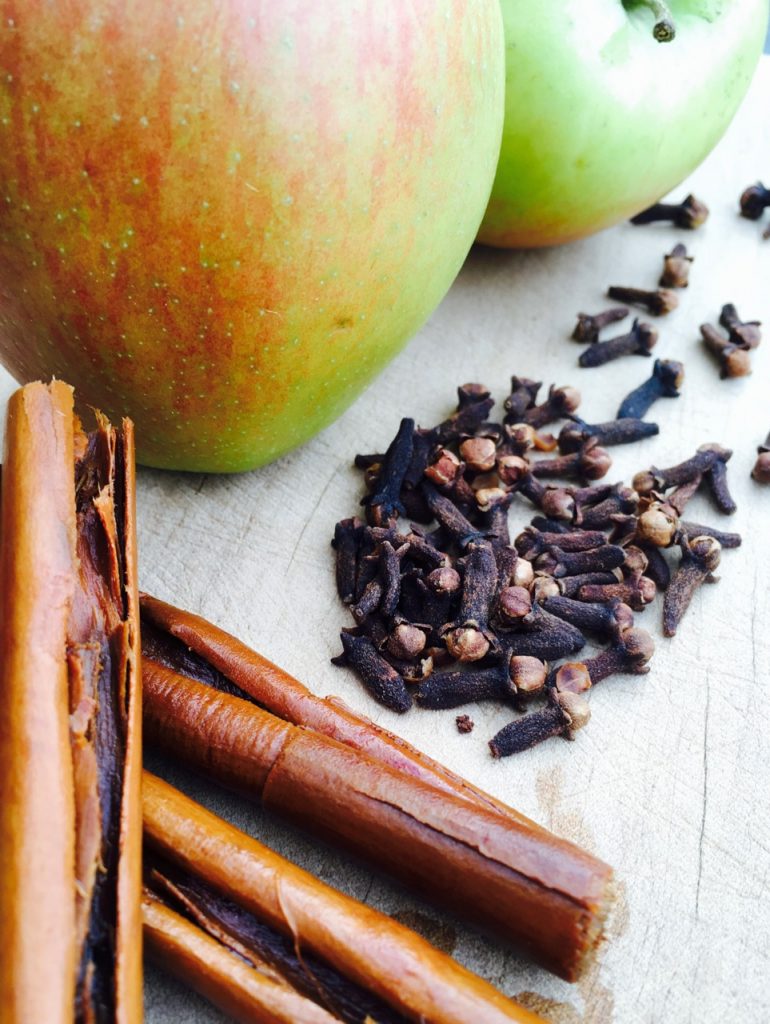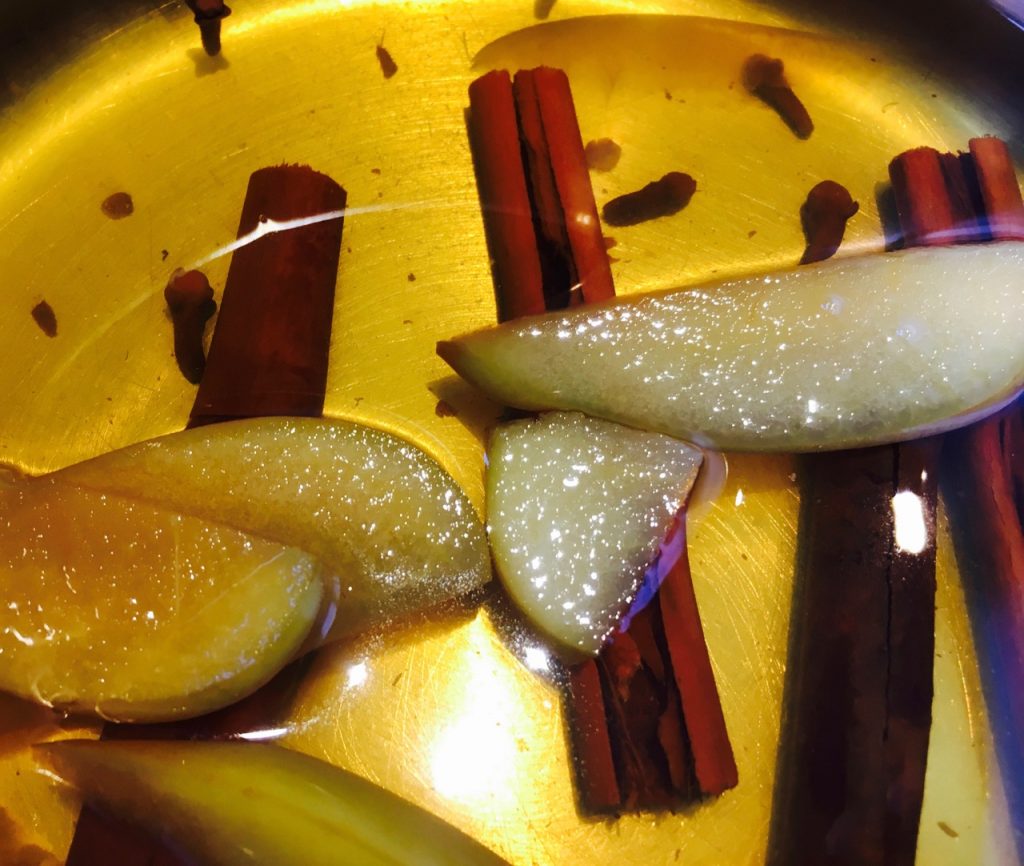This is not so much a recipe, but a guide for festive drinking and a nod to the traditions of ye olden times, traditions that seem both timeless and borderless. Whether they’re Geman family recipes, warming mugs of punch at the Viennese Christmas markets or wassail punch recipes, there’s no hard and fast rules about what to throw in to your festive bowl. Ingredients like apple slices, orange and lemon rind, cinnamon, clove, nutmeg, allspice and star anise are the main players when mulling your favourite tipple.
Some clever folks keep their punch warming in a slow-cooker, and others like me, warm it once on the stove when the guests arrived, but sadly the heat doesn’t last very long and being distracted and leaving the hob on is a sure-fire way to over-heat the cider. There are solutions to this festive problem, and if you have parties often or volunteer at the annual local mulled-wine stall, it’s probably worth investing in an urn or hot-drink dispenser, but for the more casual mulled-beverage punter, you might prefer the simpler, and less expensive option of a heat-retaining lid. These clever things sit on top of a pot of simmering hot water and keep mugs or glasses of cider warm for guests, much like a bain marie.
Today, you can buy pre-mulled wine in bottles as they’ve become ubiquitous with Christmas and winter festivities. However, mulled ciders are not as easy to come by, but luckily you can make mulled cider very easily. I couldn’t find any non-alcoholic ciders locally, so you can either use hard-cider or apple juice. In my concotion I added some left over ginger ale, a bit of white wine and some Calvados (apple brandy) but actually the traditional wassail recipes are much simpler. I couldn’t find the history of the German ‘gluhmost’ (mulled white wine/cider) but the Internet is full of details about the English tradition of wassail.
The word ‘wassail’ more less means a toast to good health, and the English would use this word specifically for the ancient ritual (also known as ‘apple howling’) of blessing the apple trees in cider orchards. Traditionally done on the Twelfth Night – as in the 12 Days of Christmas, which ends on 5th or 6th of January with Epiphany (or 17th January in old times). The villagers would make apple punch and take it to the orchard in a large, richly decorated wooden bowl and ceremonies would be held to scare away evil spirits and keep the trees in good health, thus ensuring the bounty for the coming year. A piece of toast would be soaked in the punch and either buried at the roots of the trees or hung from a branch as a libation in exchange for good apple fortunes. That’s why we call it a ‘toast’.
Mulled Apple Punch
Serves 3-4
2-3 bottles of hard apple cider
1 cup of apple juice
Sweetener such as honey or brown sugar about 3 spoonfuls
4-5 cinnamon sticks
1 tbsp whole cloves
Thin slices of apple
1/2 cup (or more) of Calvados
Optional spices include whole cardamon pods, slices of ginger, citrus rind, star anise, vanilla pod or nutmeg
Simply warm all the ingredients in a pot until the flavours of the spices flavour the liquid. Don’t boil – or the alcohol will dissipate. And nobody wants that.


